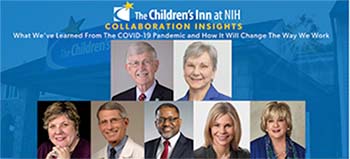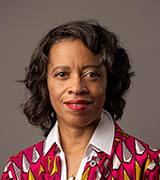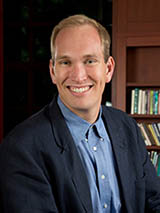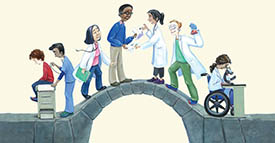Announcements
THE CHILDREN’S INN AT NIH
- “Collaboration Insights: What We’ve Learned From the COVID-19 Pandemic and How It Will Change the Way We Work”
- Monday, November 15, 2021 5:30–6:30 p.m.
- Register Now at https://childrensinn.org/event/collaboration-insights/

The COVID-19 pandemic necessitated unprecedented collaboration among scientists, all levels of government, the private sector, non-profit partners and the public. Join leaders from The Children’s Inn, the National Institutes of Health, and the U.S. Food and Drug Administration for a virtual roundtable discussion about what we have learned about effective collaboration and how these lessons will change the way we work, how we communicate and how organizations and people will partner to achieve common goals in the years ahead. Panelists include NIH Director Francis Collins; Janet Woodcock, Acting Commissioner of Food and Drugs, FDA; Patricia Flatley Brennan, Director, NLM; Anthony S. Fauci, Director of NIAID; Gary H. Gibbons, Director NHLBI; Jennie Lucca, CEO, The Children’s Inn at NIH; Susan Penfield, The Children’s Inn Board Chair and Executive Vice President, Booz Allen Hamilton.
THE 2021 NIH BEHAVIORAL AND SOCIAL SCIENCES RESEARCH FESTIVAL (VIRTUAL)
- Thursday and Friday, November 18 and 19
- 1:00–4:30p.m. ET each day
- Register and view the agenda and speaker biographies:
- https://www.scgcorp.com/obssrfest2021/Registration
- For more information about past festivals, click here.
The Office of Behavioral and Social Sciences Research (OBSSR), in collaboration with the NIH Behavioral and Social Sciences Research Coordinating Committee (BSSR-CC), holds the annual NIH Behavioral and Social Sciences Research Festival on the NIH campus. This new annual meeting is organized to inform the wider BSSR community, stakeholders, and NIH Institutes and Centers (ICs) about the latest BSSR funded by the NIH and its overall impact and importance across the entire field of biomedical research. Additional goals are to assist the ICs with the establishment of research priorities and the coordination of their programmatic efforts, thus minimizing redundancy and maximizing returns on NIH investments in BSSR. The festival highlights exciting research results, emerging areas, and innovations in health-related BSSR. This trans-NIH event enables efficient leveraging of NIH resources and expertise. The BSSRCC members contribute diverse and comprehensive perspectives on the NIH BSSR portfolio, thus facilitating the selection of an outstanding array of research results that are highlighted at the festival.
For more information about past festivals, click here. Please subscribe to OBSSR’s LISTSERV to receive updates onupcoming events.
NEW ORWH VIDEO SERIES COMPLEMENTS E-LEARNING COURSE ON SEX AS A BIOLOGICAL VARIABLE
ORWH recently released a series of supplemental videos that complement the Sex as a Biological Variable (SABV): A Primer e-Learning course. The SABV course gives users a thorough and up-to-date understanding of NIH requirements for factoring SABV into research designs. Users will be able to apply this knowledge when designing studies, conducting research, and interpreting evidence. The videos introduce SABV and the NIH policy, summarize the e-learning course and its four modules, and share insights on SABV and sex differences research from principal investigators in the Specialized Centers of Research Excellence on Sex Differences (SCORE) program. ORWH has also developed two other e-learning courses: Bench to Bedside: Integrating Sex and Gender to Improve Human Health and Introduction: Sex- and Gender-Related Differences in Health. All of the courses and videos are available at no cost to the public.
MINDFULNESS AS A SUPPORT FOR HEALING CONVERSATIONS AND ACTIONS TOWARD SOCIAL JUSTICE AND EQUITY
- Virtual Lecture: 2021 Stephen E. Straus Distinguished Lecture in the Science of Complementary Therapies
- Wednesday, December 15, 2021, 12:00-1:00 p.m. ET
- NIH VideoCast (registration required) and NCCIH Facebook
- Webpage for more information and to register: https://bit.ly/SESLecture21

Rhonda V. Magee
The National Center for Complementary and Integrative Health (NCCIH) presents the 2021 Stephen E. Straus Distinguished Lecture in the Science of Complementary Therapies, honoring the founding director of NCCIH. Rhonda V. Magee, J.D., is Professor of Law at the University of San Francisco School of Law, a longtime teacher and practitioner of mindfulness, and a scholar of contemplative education. She is author of the book The Inner Work of Racial Justice: Healing Ourselves and Transforming Our Communities Through Mindfulness. Professor Magee received her J.D. from the University of Virginia School of Law.
Summary: From personal to structural, racism may be understood as an endemic public health threat with crisis-level effects. Mindfulness practices, originating from many cultures and traditions, are an active area of scientific investigation for health and other benefits. Mindfulness is often studied for its internal effects on individuals, but many other important research questions remain underexplored. Professor Magee will describe some of the research indicating that mindfulness assists in addressing social identity–based bias and its consequences. She will offer insights on how mindfulness has been shown to help people, for example, increase their emotional resilience; address fears, anxieties, and other emotions; choose how they will respond to injustice; and change unhelpful habits. She will also discuss a new area of study: external mindfulness and its effects as individuals interact with others, their environments, and an array of challenges.
This lecture is supported by the Foundation for the National Institutes of Health with a generous gift from Bernard and Barbro Osher. To request sign language interpreting services or other reasonable accommodations to participate, contact the NCCIH Clearinghouse at info@nccih.nih.gov or 1-888-644-6226 by December 8.
2021 NATIONAL NATIVE AMERICAN HERITAGE MONTH VIRTUAL GUEST LECTURE
- “The Interconnectedness of Culture And Science”
- Wednesday, November 17, 2021, 2:00 to 3:00 p.m. ET
- Videocast: https://videocast.nih.gov/watch=44044

Join the NIH Tribal Health Research Office on for a special National Native American Heritage Month event honoring and celebrating American Indian and Alaska Native ingenuity and culture. Dr. Donald Warne, Director, Indians Into Medicine and Public Health Programs, and Associate Dean, Diversity, Equity, and Inclusion, at the University of North Dakota, will offer a virtual lecture about the interconnectedness of culture and science.
NIH DIRECTOR’S SEMINAR SERIES (2021–2022)
- Fridays at noon
- Seminars will be videocast on videocast.nih.gov
Friday, November 19: Heidi Kong, M.D. (NIAMS), “The skin we live in: The human skin microbiome”
Friday, December 17: Kelvin Choi, Ph.D. (NIMHD), “The perfect storm: Intersections of social determinants of health, commercial determinants of health, and commercial tobacco use disparities”
Friday, January 14: Michael Krashes, Ph.D. *NIDDK), “A neural basis behind the hardships of dieting”
Friday, February 18: Loncarek, Ph.D. (NCI), “Cell cycle regulators as drivers of centrosome assembly”
Friday, March 11: Niki Moutsopoulos, D.D.S, Ph.D. (NIDCR), “Mucosal Immunity at the oral barrier: from bedside to bench”
Friday, April 15: Pamela Guerrerio, M.D., Ph.D. (NIAID), “Role of TGFbeta in the pathogenesis of allergic diseases”
Friday, May 6: Kandice Tanner, Ph.D. (NCI-CCR), “Microenvironment regulation of metastasis”
Friday, June 17: Zayd Khaliq, Ph.D. (NINDS), “Inhibitory circuit control of dopamine neuron subpopulations”
Friday, July 15: Vincent Munster, Ph.D. (NIAID), “The ecology of emerging coronaviruses, from host reservoir to disease”
OFFICE OF NIH HISTORY LECTURE
- History of Cancer Virus Research
- Thursday, December 16; noon to 1:00 p.m.
- Videocast: https://videocast.nih.gov/watch=44150

Robin Scheffler
Robin Scheffler (MIT) will give a talk on the history of cancer virus research. Scheffler, an associate professor in MIT’s Science, Technology, and Society Program, is an historian of the modern biological and biomedical sciences and their intersections with developments in American history. He is currently working on a project that follows the history of cancer virus research in the 20th century from legislature to laboratory, documenting its origins and impact on the modern biological sciences. His other projects include the history of the biotechnology industry and a chemical biography of dioxins. The common goal of Professor Scheffler’s projects is to understand the mutual influence of science on society and of society on science.
2021-2022 WEDNESDAY AFTERNOON LECTURES
- Most Wednesdays through June; 3:00–4:00 p.m.
- Videocast: https://videocast.nih.gov
- View the archives dating back more than 20 years: https://videocast.nih.gov/PastEvents?c=3
- WALS website: https://oir.nih.gov/wals
The NIH Director’s Wednesday Afternoon Lecture Series(WALS) is the highest-profile lecture program at the NIH. All WALS talks will be held remote-only via NIH Videocast at least through December 2021. Lectures will be archived.
November 17, 2021: “Blood Stem Cell Clonality and the Niche,” Leonard Zon, M.D. (HHMI Investigator; Grousbeck Professor of Pediatric Medicine, Harvard Medical School; Director, Stem Cell Program at Boston Children’s Hospital)
December 1, 2021: “Reconstruction of the Pathophysiology of Chronic Pain from Genome-wide Studies,” Luda Diatchenko, M.D., Ph.D. (Canada Excellence Research Chair in Human Pain Genetics; Pfizer Canada Professor in Pain Research. McGill University)
December 8, 2021: Astute Clinician Lecture; “Advancing Therapies for Neurofibromatosis Type 1 (NF1): Lessons Learned from Every Patient,” Brigitte Widemann, M.D.(Chief, Pediatric Oncology Branch; Head, Pharmacology and Experimental Therapeutics Section; CCR Deputy Director, NCI)
December 15, 2021: William E. Paul Lecture; “Cytokine Signaling: The More Things Change, the More They Stay the Same,” John O’Shea, M.D. (Scientific Director, National Institute of Arthritis and Musculoskeletal and Skin Diseases)
January 5, 2022: Danielle Bassett, Ph.D. (Professor of Physics and Astronomy; Associate Professor of Bioengineering, University of Pennsylvania)
January 12, 2022: “Elucidation and Pharmacological Targeting of Cellular Dependencies at the Single Cell Level,” Andrea Califano, Ph.D. (Clyde and Helen Wu Professor of Chemical and Systems Biology; Chair, Department of Systems Biology; Director, JP Sulzberger Columbia Genome, Columbia University Medical Center)
January 19, 2022: “Single-Molecule Studies of Homologous Recombination,” Eric Greene, Ph.D. (Professor Department of Biochemistry & Molecular Biophysics, Columbia University Medical Center)
January 26, 2022: George Khoury Lecture; “Translating Studies of HIV Immunity to SARS-CoV-2,” Julie Overbaugh, Ph.D. (Professor, Human Biology Division; Professor, Public Health Sciences Division; Endowed Chair for Graduate Education; and Director, Office of Education and Training, Fred Hutch)
February 2, 2022: Katherine High, M.D. (President of Therapeutics, AskBio; Emeritus Professor of Pediatrics, Perelman School of Medicine; University of Pennsylvania)
February 9, 2022: “Environmental Control of T Lymphocytes,” Doreen Cantrell, Ph.D. (Professor of Cellular Immunology and Wellcome Trust Principal Research Fellow, University of Dundee, Scotland)
February 16, 2022: Cassandra Extavour, Ph.D. (Professor, Department of Organismic and Evolutionary Biology, Department of Molecular and Cellular Biology, Harvard University)
February 23, 2022: “Control of Embryonic Morphogenesis,” Cliff Tabin, Ph.D. (George Jacob and Jacqueline Hazel Leder Professor of Genetics; Chair, Department of Genetics, Harvard Medical School)
2022 DEMYSTIFYING MEDICINE
- Tuesdays, January 4–May 3, 2022, 4:00–6:00 p.m.
- Videocast live and archived online at https://videocast.nih.gov/default.asp
- (All presentations will be held online until further notice)
- To sign up and for more information, go to https://demystifyingmedicine.od.nih.gov.

The NIH- and FAES-sponsored course “Demystifying Medicine” is designed to excite the interest of Ph.D. and M.D. students, fellows, researchers, and others in bridging the gap between amazing advances in basic science and the challenges of clinical disease. There are no formal requirements to attend as many of the weekly sessions as desired. The format involves a translational physician, a basic scientist, and usually a live patient who puts a human face on the disease.
January 4: Anthony Fauci (NIAID), Roger Glass (Fic), “COVID: Then, Now, and the Future
January 11: Barry Marshall (UWA), Martin Blaser (Rutgers), “The Split Personality of Helicobacter Pylori”
January 18: Jeffrey Gordon (WUSL) “Malnutrition: The Role of the Microbiome”; Tim Gretin (NCI) “How Gut Microbiome Controls Growth of Liver Tumors”
January 25: Luba Vihkanski (Weizmann, Israel) “Innate Immunity: Elie Metchnikoff (1845-1916) and the Immunity War”; Robert Gallo (UMD) “Innate Immunity Today”
February 1: Michael Lenardo (NIAID) and Helen Su (NIAID), “Defining Genes Underlying Mendelian Immunological Disorders Leads to Precision Medicine Interventions“
February 8: Lindsey Criswell (NIAMS), “Epigenetic contribution to autoimmune diseases”; Steven Holland (NIAID), “Anticytokine Autoantibodies: Important Underappreciated Cofactors in Rare and Common Conditions”
February 15: Richard Youle (NINDS), Derek Narenda (NINDS), “The Mighty Mitochondrion and its Diseases”
February 22: Dan Kastner (NHGRI), Daniela Schwartz (NIAID), and Kalpana Manthiram (NIAID), “Reimagining the Taxonomy of Autoinflammatory Disease”
March 1: Nick Lane (UCL-UK), Jennifer Lippincott Schwartz (HHMI), “Origin of Life: Viewed by Evolutionary Biologist and Cell Biologist”
March 8: Nora Volkow (NIDA), “Brain Development in Adolescents and Addiction Risks”; Branda Curtis (NIDA), “Stigma in Addiction Treatment”
March 15: Neal Young, “Somatic Mutations in “Benign” Diseases”; Peter Grayson “Somatic Mutations in Rheumatologic Diseases: VEXAS and Beyond”
March 22: Sangeeta Bhatia (MIT), “Tiny Technologies and Medicine: From Hepatic Tissue Engineering to Cancer Nanotechnology”
March 29: Walter Koroshetz (NINDS), Joshua Gordon (NIMH), “Chronic COVID: Neurologic and Mental Effects”
April 5: Lyuba Varticovski (NCI), Alan Decherney (NICHD), “Endocrine Disrupters and Fertility”
April 12: John Mather (NASA), “Seeing Biology and Physics in Space”
April 19: Evelina Federenko (MIT), Nadia Biassou (CC), “How Minds and Brain Create Language”
April 26: Brigitte Widemann (NCI) and Jack Shern (NCI), “Neurofibromatosis Type 1 Tumors: Natural History to Precision Therapy”
May 3: NIH Director Francis Collins
This page was last updated on Monday, January 31, 2022
